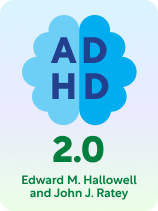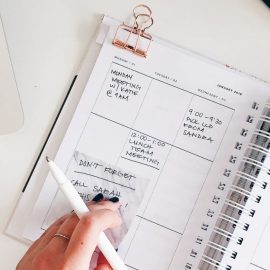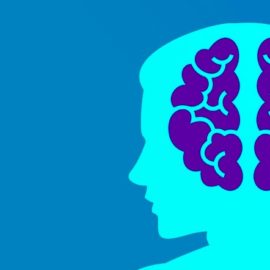

This article is an excerpt from the Shortform book guide to "ADHD 2.0" by John Ratey and Edward Hallowell. Shortform has the world's best summaries and analyses of books you should be reading.
Like this article? Sign up for a free trial here.
Why are social connections especially important for people with ADHD? What are some practical things that people can do to enjoy more connection?
Psychiatrist Edward Hallowell and professor of psychiatry John Ratey say that people with ADHD have a deep-seated need for interpersonal connection—in other words, for love. They recommend that people with ADHD nurture close friendships, socialize with acquaintances, and perhaps get a pet for companionship.
Continue reading to learn about ADHD and socializing.
The Importance of Connection
The authors emphasize the importance of connection for several reasons. First, ADHD and socializing don’t necessarily go together naturally. People with ADHD often struggle in social situations, which makes it more important for them to nurture the connections they do have. They tend to miss or misunderstand social cues that come naturally to neurotypical people, and they also tend to impulsively interrupt conversations or blurt out inappropriate things. As a result, they find it difficult to fit in, and they may come across as rude or self-centered.
(Shortform note: If you have ADHD, you may find that you struggle to maintain long-lasting bonds with your friends even if you’re able to improve your ability to notice and respond to social cues. This is because people with ADHD often don’t pick up on friendship degradation: when friends drift apart after not speaking to each other for a while. You might still feel just as close to your friends after not speaking to them for several months, or even several years. As a result, you may have tried to connect with someone you haven’t talked to in a long time and been shocked to discover that they no longer considered you a friend.)
Second, people with ADHD tend to carry a lot of trauma, which can lead to lifelong physical and mental health issues—but deep interpersonal connections can undo a lot of that damage and help them live healthy, happy lives. This trauma comes from a lifetime of failed relationships (romantic and otherwise) and lost jobs, as well as shaming, insults, and punishments for not functioning well enough in a neurotypical-dominated world.
(Shortform note: The authors stress the importance of connection in healing from trauma, but they don’t explain why it helps so much. Close relationships provide support and encouragement that helps with healing from trauma as well as reducing stress and improving self-image. Connection with others can even help reduce symptoms of anxiety and depression. In this way, the benefits of connection directly counter many of the effects of trauma.)
Tips for Fostering Connections
People with ADHD need to connect with others, yet they often struggle to do so. To help solve this problem, the authors offer several pieces of advice about how to nurture interpersonal connections.
#1: Nurture Close Friendships
First, a person with ADHD could choose two close friends and make a point of connecting with them at least once a week. For example, a weekly video chat or movie night could provide the sort of regular human contact that they need to thrive.
(Shortform note: The authors assume that readers already have some close friends to connect with, but that may not be the case. For example, one study showed that in 2004, the average American had zero close friends. In fact, it’s notoriously hard for adults to make friends, and even harder for adults with ADHD. One reliable way for adults to make new friends is to join a group that interests them, where they’ll naturally meet other people who share that interest and interact with them regularly. However, making new friends may also require a certain amount of boldness—to make friends they wouldn’t make otherwise, people may have to accept invitations they’d normally turn down or try making the first move to start a new friendship.)
#2: Socialize With Acquaintances
Second, they could talk to people they know but don’t consider good friends, such as coworkers or the bartender at their favorite bar. While this isn’t as powerful as having deep connections with close friends, a strong network of acquaintances does help them feel seen and appreciated by their local community, increasing their sense of connection.
(Shortform note: The importance of acquaintances is a fairly new discovery. Casual acquaintances weren’t seriously considered in mental health research until 2014 when a series of studies showed the impact they could have on people’s happiness. In short, the more acquaintances you have—and the more frequently you interact with them—the happier you’ll be. This holds true regardless of whether or not you have ADHD.)
#3: Get a Pet
Finally, a person with ADHD could consider getting a pet. A friendly animal is a guaranteed source of love and comfort. Therefore, pets can be helpful for someone who needs more connection in their life.
(Shortform note: Research supports the authors’ idea that pets are a good source of connection and love and therefore improve their owners’ mental health. Another potential benefit of owning a pet is having more opportunities to get outside and exercise—going on walks and playing with pets can reduce stress, lower blood pressure, and help you lose weight. Exercise is particularly helpful for people with ADHD.)
Exercise: Make Plans With Friends
Choose two of your close friends and write down some ideas for how you could see or speak to them at least once a week. Come up with at least one idea for each friend. For instance, you might have a weekly phone call with one of them and meet the other at the bar on Friday after work. Alternatively, write down two ways you could make some new friends, such as joining a local club. (Remember: Strong connections with other people are crucial for your mental, emotional, and physical health.)

———End of Preview———
Like what you just read? Read the rest of the world's best book summary and analysis of John Ratey and Edward Hallowell's "ADHD 2.0" at Shortform.
Here's what you'll find in our full ADHD 2.0 summary:
- How people can thrive because of—not in spite of—having ADHD
- The biological causes of ADHD and its most prominent symptoms
- Ways to minimize ADHD's downsides and maximize the benefits






